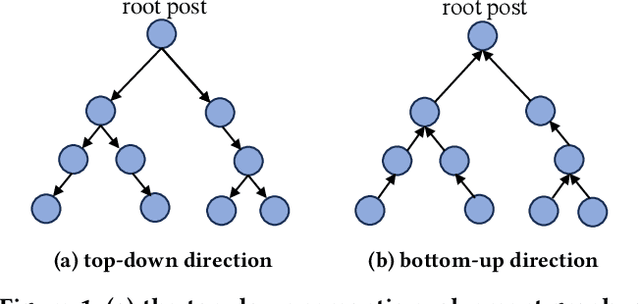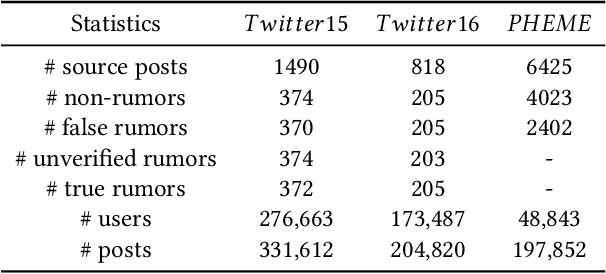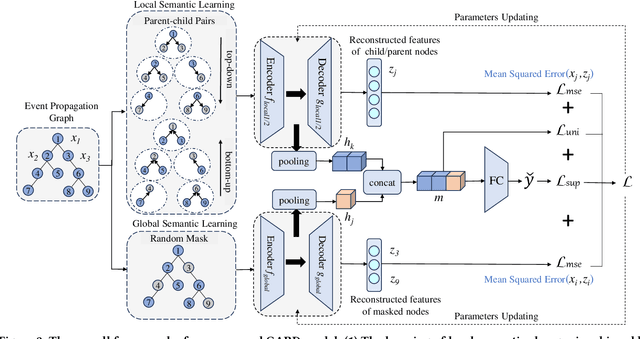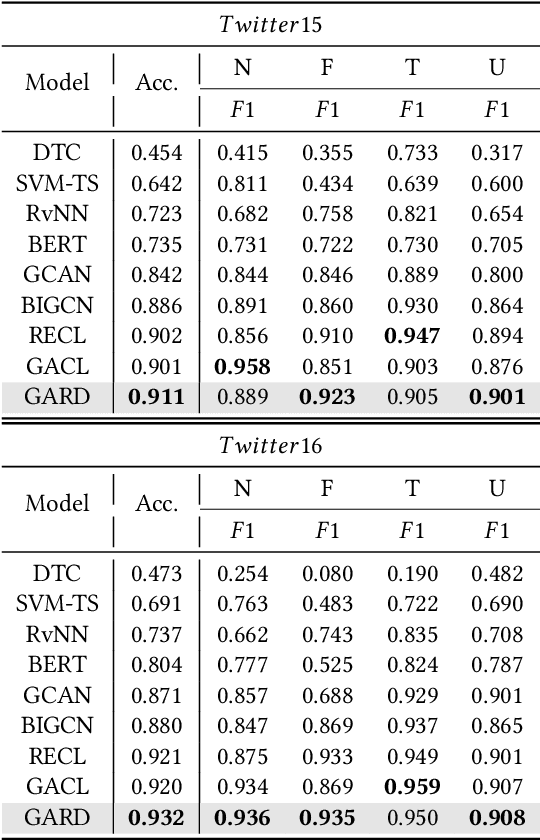Semantic Evolvement Enhanced Graph Autoencoder for Rumor Detection
Paper and Code
Apr 24, 2024



Due to the rapid spread of rumors on social media, rumor detection has become an extremely important challenge. Recently, numerous rumor detection models which utilize textual information and the propagation structure of events have been proposed. However, these methods overlook the importance of semantic evolvement information of event in propagation process, which is often challenging to be truly learned in supervised training paradigms and traditional rumor detection methods. To address this issue, we propose a novel semantic evolvement enhanced Graph Autoencoder for Rumor Detection (GARD) model in this paper. The model learns semantic evolvement information of events by capturing local semantic changes and global semantic evolvement information through specific graph autoencoder and reconstruction strategies. By combining semantic evolvement information and propagation structure information, the model achieves a comprehensive understanding of event propagation and perform accurate and robust detection, while also detecting rumors earlier by capturing semantic evolvement information in the early stages. Moreover, in order to enhance the model's ability to learn the distinct patterns of rumors and non-rumors, we introduce a uniformity regularizer to further improve the model's performance. Experimental results on three public benchmark datasets confirm the superiority of our GARD method over the state-of-the-art approaches in both overall performance and early rumor detection.
 Add to Chrome
Add to Chrome Add to Firefox
Add to Firefox Add to Edge
Add to Edge